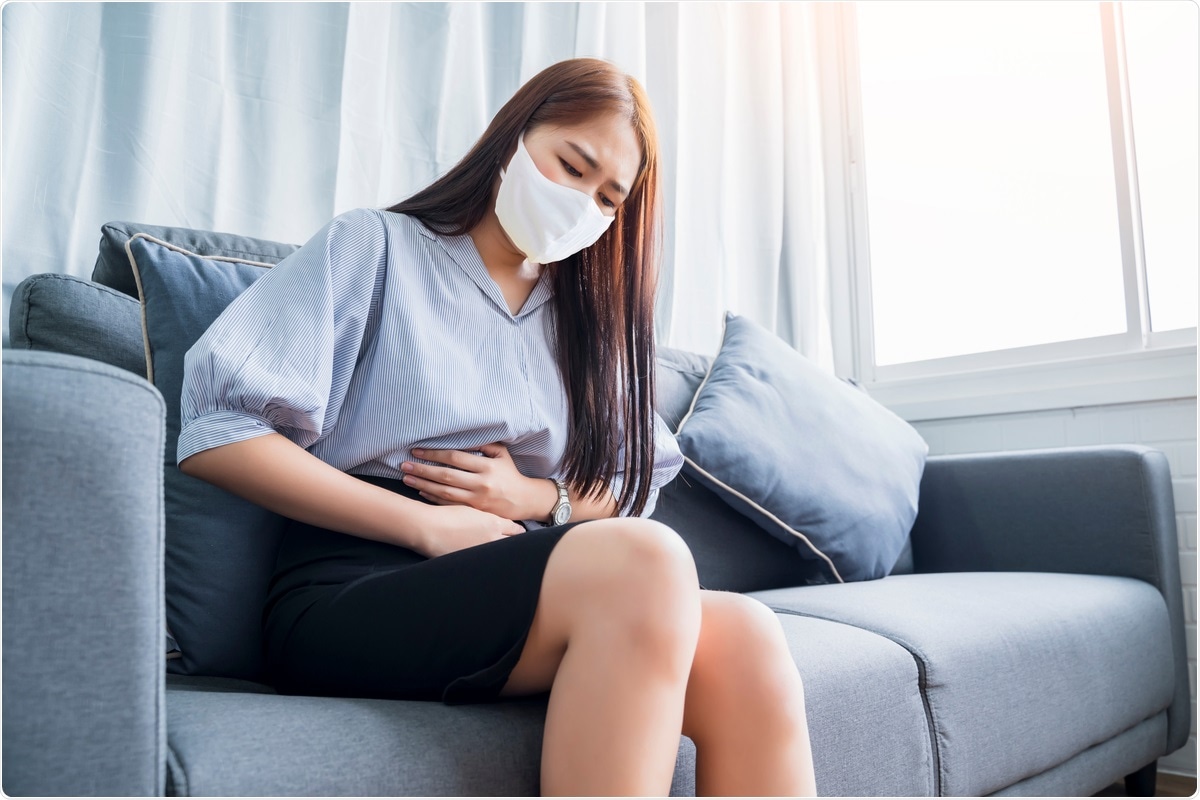The United European Gastroenterology (UEG) Public Affairs Committee has published a position paper in the UEG journal to educate policymakers, patients, healthcare professionals, and the general public about the impacts of the coronavirus disease 2019 (COVID-19) pandemic on digestive health. They also provide recommendations for the clinical considerations on using COVID-19 vaccines in patients with chronic digestive conditions.
 Study: COVID-19 and digestive health: Implications for prevention, care and the use of COVID-19 vaccines in vulnerable patients. Image Credit: Have a nice day Photo/ Shutterstock
Study: COVID-19 and digestive health: Implications for prevention, care and the use of COVID-19 vaccines in vulnerable patients. Image Credit: Have a nice day Photo/ Shutterstock
COVID-19 and digestive health
COVID-19 is a respiratory disease caused by the severe acute respiratory syndrome coronavirus 2 (SARS-CoV-2). Even so, it also affects other organs and presents complications apart from the lungs.
COVID-19 pandemic has strongly affected digestive healthcare. The clinical routines of gastroenterologists and hepatologists have been disrupted. Endoscopy has been limited to emergencies.
Moreover, lockdown measures have led to unhealthy eating habits, decreased physical exercise, decreased patient interactions with medical services, and increased alcohol consumption or relapse in patients.
Gastrointestinal (GI) patients are vulnerable to increased morbidity and worse outcomes due to SARS-CoV-2 infection. Policymakers should consider the health of patients with impaired immunity for making strategies for disease prevention and COVID-19 vaccination.
COVID-19 lockdown consequences
Beyond COVID-19 mortality and morbidity, COVID-19 has surely had social consequences.
Screening delays affecting patients with colorectal cancer (CRC)
CRC mortality rates in Europe have declined due to the rollout of screening programs. Several GI endoscopy procedures were canceled due to the pandemic. Since this procedure is used for screening, early diagnosis, and treatment of digestive tract cancers, recent studies have predicted an increase in GI cancer burden.
COVID-19 pandemic has led to increased obesity rates
Lockdown and social distancing have caused weight gain in many individuals due to decreased physical exercise and increased eating due to boredom, anxiety, or depression. Moreover, there has been increased consumption of snacks, unhealthy foods, and sweets. Since nutrition affects immunity, adopting bad lifestyle habits may increase the risk of chronic and communicable diseases.
A study from the UK showed that the risk of COVID-19 positivity was lower when individuals consumed vegetables and higher when they consumed processed meats. Also, the COVID-19 pandemic may have potentially increased the prevalence of digestive and liver disease associated with obesity. Furthermore, non-alcoholic fatty liver disease is a potential risk factor for SARS-CoV-2 infection and severe COVID-19.
Vaccination of vulnerable GI patients
The conditions in which patients with inflammatory bowel diseases (IBD), liver disease, digestive cancer, and liver transplant recipients should be managed for vaccination must be clarified.
Patients with cancer
Several oncology professional societies strongly recommend the vaccination of patients with cancer since they are at a higher risk of severe COVID-19. A recent study that evaluated the efficacy of vaccination in patients on chemotherapy and/or immunotherapy indicates that COVID-19 vaccination will achieve an adequate antibody response in these patients. However, the duration of immune response in the patients is yet to be evaluated.
Patients with IBD
Patients with IBD have altered underlying immune responses that may increase vulnerability to infections. Furthermore, they are treated with immunosuppressive medications. All approved COVID-19 vaccines are considered safe in immunocompromised patients. However, it can be expected that the immunological response to vaccination may be suboptimal in these patients. Nevertheless, expert reviews encourage vaccination in all IBD patients, preferably with mRNA vaccines.
Patients with liver disease
No safety issues have been reported in liver transplant recipients or patients with mild-moderate liver disease who received the COVID-19 vaccine. In one study from China, patients with non-alcoholic fatty liver disease reported mild side effects and produced neutralizing antibodies against SARS-CoV-2. Clinical guidelines recommend pre-transplant and post-transplant vaccination against a variety of pathogens for patients with liver diseases awaiting liver transplantation and in liver transplant recipients. Some studies have shown that a third dose of vaccine in these patients achieved a higher immune response.
UEG's recommendations
For healthcare organizations:
- Governments should consider the latest clinical data to decide policies and guidelines and ensure citizens' protection and support, especially while lifting lockdown measures.
- Elective procedures like endoscopies should be resumed and maintained to protect patients and healthcare.
- The effects of lockdowns across Europe on cancer screening, diagnosis and staging should be assessed.
For COVID-19 vaccinations:
- Immunocompromised patient groups should be prioritized in vaccination schemes and epidemiological settings.
- The administration of booster doses should be evidence-based. Post-vaccination antibody levels should be determined in vulnerable populations such as patients with IBD under immunosuppressive treatment, patients with digestive cancers under treatment, and transplant recipients.
For EU policymakers:
- The European Commission has a goal of building a European Health Union. The European Centre for Disease Control and Prevention (ECDC) mandates and the European Medicines Agency facilitate a strong and coordinated Union-level response to health crises. UEG strongly supports these mandates.
- The COVID-19 pandemic amplifies the links between communicable and non-communicable diseases. Therefore, the revision of the ECDC mandate should include activities in the area of non-communicable diseases.
Journal reference:
- Peck‐Radosavljevic, M. et al. (2021) "COVID‐19 and digestive health: Implications for prevention, care and the use of COVID‐19 vaccines in vulnerable patients", United European Gastroenterology Journal. doi: https://doi.org/10.1002/ueg2.12173